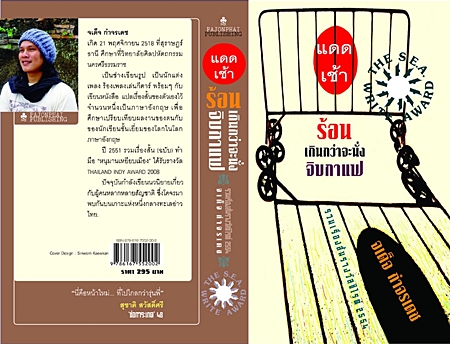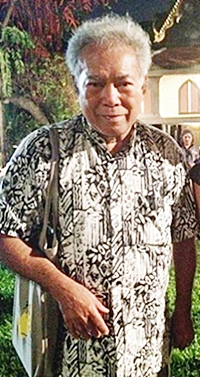Thailand’s latest compilation of short stories that clinched the 2011 South East Asian Writers Awards (S.E.A. Write) for short story genre was written by Jadej Kamjorndet, who has a particular literary way of sharing the human experience.
Those reading his “Daet Chao Ron Gern Gwaa Ja Nang Jip Gaa-Fae” (The Morning Sun is Too Hot to Sit and Sip Coffee) might say Jadej’s descriptive writing style is confusing and difficult to understand, for it was unprecedented and the storylines of each story were out of order even though somehow link with each other like pieces of pictures in a jigsaw.
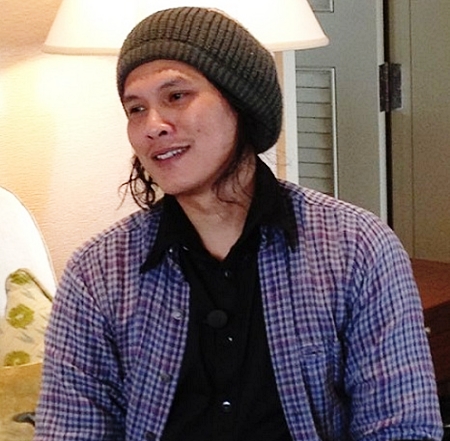
Usually, Jadej’s characters in the book are confused about themselves, which he said was what he wanted his readers to also feel the same after reading the book and started thinking if there is something wrong with them. It was not meant to hurt the readers, he added, but rather he views every human being as being ill from a mental disease. They are unsatisfied with themselves while not even realising their dissatisfaction. A description starts each story, while it keeps coming back to lead the reader to other events.
As a writer is also an artist, the father of two sons viewed that relying on a formal writing style was not a good way to create a piece of art. An artist would want to create something that is a step forward or something new and different, while the new and different art itself can always be judged in two ways — either as being of value or as worthless.
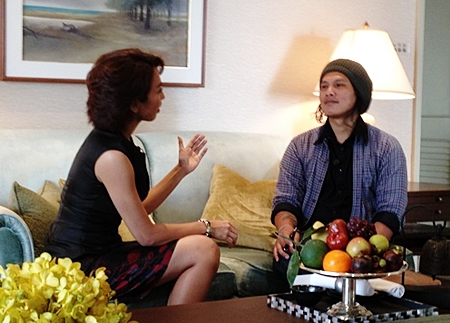
Dr Edwin Nadason Thumboo, an award-winning Singaporean poet and academic, who was the first S.E.A. Write awardee, in 1979, and the guest speaker for the 2011 event – postponed from last year’s flood crisis to last week in Bangkok, recently said the human experience has been converted in the form of arts and that is language. Other types of the arts are also important, but “we have to remember literature is the only art whose medium is used to examine all the other arts”.
To Jadej, the S.E.A. Write Award was not an indicator of success for him, for if it had been, he would have stopped writing. Rather the prize was a guarantee that he can write. It was a beginning, a changing point in his life and a door that will bring him to another place, while asking him what he will do next. Still in doubt of his own ability, the 2011 Thai awardee wishes his work to be recognised by readers who really appreciate the content of his work rather than to read his book because it was awarded.
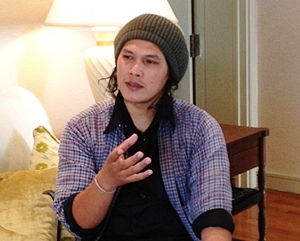
Meanwhile, the Thai awardee commented that looking at the region as a whole, the literature of Southeast Asia is so little known among its members. He called for translation support by related parties and sponsors with English advised as a central language in the basket before being translated again into a local language to reach a wider audience. Further activities could be that all the S.E.A. Write-awarded books from each country be judged again annually by a central committee to search for the best writer of South East Asia.
According to Edwin, he was “certain as the time goes on, the S.E.A. Write Organisation shall be the main structure upon which to develop as S.E.A. Write becomes more regional, equally important, more international, but above all it has to be national”.
He is again right when adding: “Language gives people a broader capacity for analysis and integration, while literature helps to develop a language, to preserve it, and to keep it vital.” While images are only transient, he said, but it is grammar and language that can handle the complexity of life.
